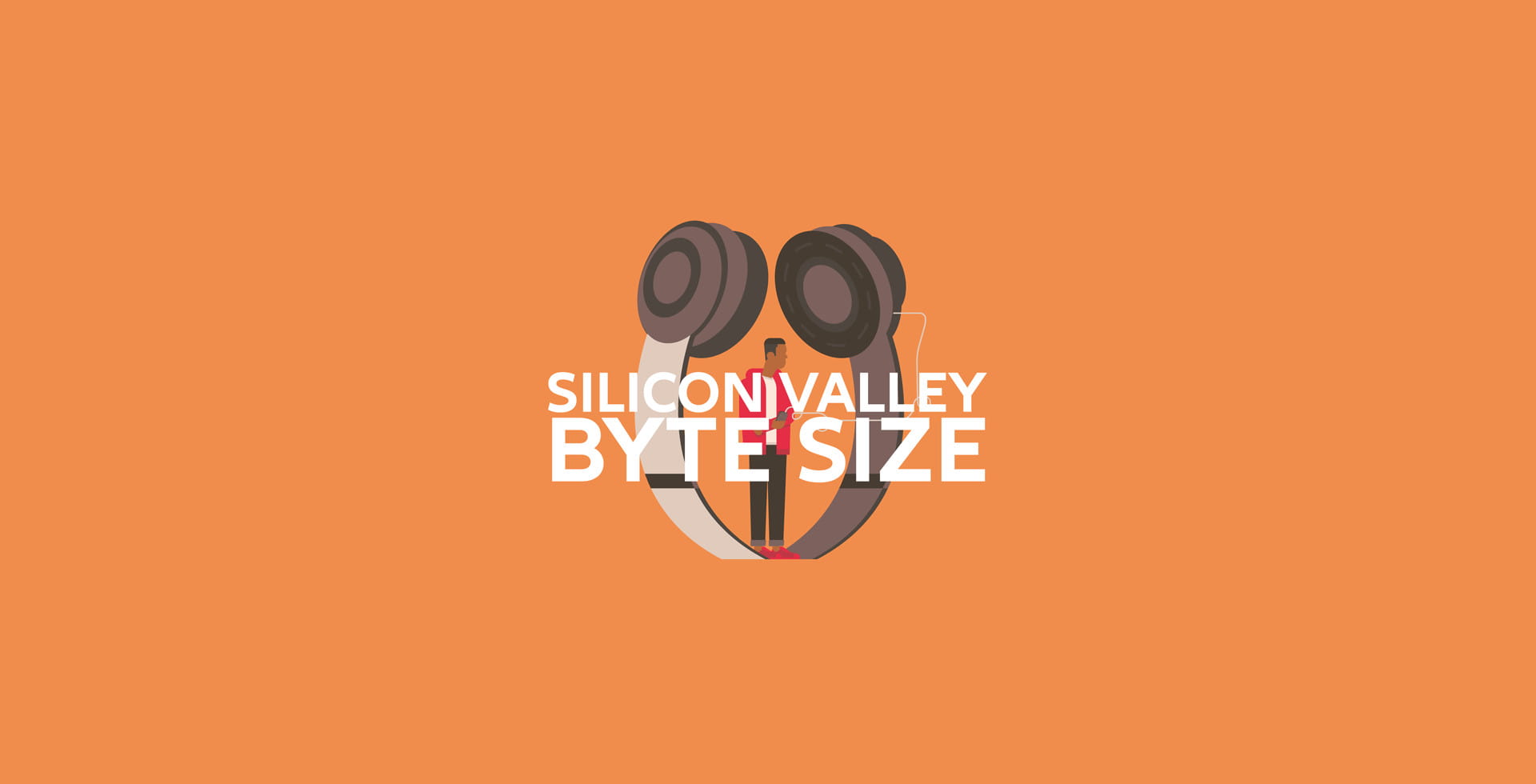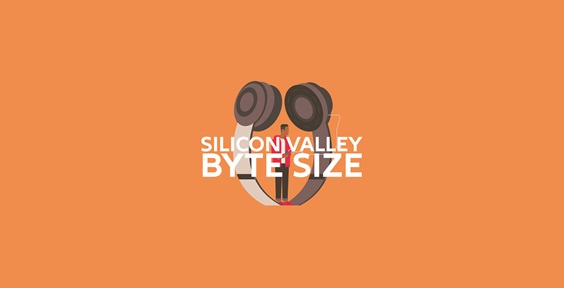Silicon Valley Byte Size - The Allianz Technology Trust Podcast
Beyond the behemoths

CR: Hello and welcome to Silicon Valley Byte Size, an update on the tech sector from Allianz Technology Trust. I'm Cherry Reynard and with me today is Mike Seidenberg, the manager of the Trust. So welcome, Mike.
MS: Nice to see you.
CR: We're going to take a look back at 2024 to date and how the technology sector has evolved. I wonder, I feel like The Magnificent Seven has probably been talked about far too much for much of the year, but, and it seems to have sucked a lot of oxygen from the rest of the technology sector. But I wonder if you could just start by putting their performance into context and talking a bit about the real sort of concentration in the market that's come about.
MS: Yeah, I mean, they've been an amazing group of stocks, it's rare when you see this type of concentration for the duration that they've had. They've obviously performed well as a group, with some variability within the group. From a Trust perspective, we tend to focus more on large-cap and mid-cap. So, they've been a headwind for us. I think for technology to work longer term, it can't be concentrated in just a few names. But they're so uniquely positioned, some of them, and it's just great, great businesses on average, I think the challenge that I see is they're very well-trafficked, and it's something that, the owners of the Trust really look to us to find names outside of, these large mega-caps. So, we're running as fast as we can and, I'm very aware of them. Obviously, I think about them all the time and, trying to find companies that I think can potentially outperform them, but I think your observation is spot on. I mean, they're taking up a fair amount of capital, just from a risk management perspective.
CR: Yes, yes, it's true, isn't it? And the thing is, people can get them everywhere. So…
MS: Yeah.
CR: And, there's been this significant focus on the mega-caps. Do you think that there seems to be some evidence in markets that investors are finally willing to look at other areas? I mean, are you seeing that? Are you seeing people moving a bit further down the market capitalisation scale?
MS: Yeah, we are. You know, the digestion phase post the pandemic took a while, right? I mean, there was just, just so much technology was purchased to get everyone productive, and as we normalised as a society, it just took a while for organisations to digest what they bought. The reality is, you need to do something for most companies because if you don't, someone else will. So, we’re starting to see in targeted areas of spend, companies, businesses getting better, and that's exciting and that's, that gives me, a fair degree of optimism. But I don't, I'm not expecting that we go back to a ‘rising tide lifts all boats’ type of IT spending environment. I think that the bar remains fairly high in order to, to have someone purchase your product and for the most part, and I've said this before, the users of technology, whether it's, a good time or a more challenging time, the demands remain really robust on IT departments, so that doesn't abate. So, we've had this period of digestion where companies really haven't purchased much post, post digesting what they bought. So, I think we're now, I'm cautiously optimistic that ‘25 is a better year. Having said that, I think you need to be in, in the right sectors, so, I mean, and that's our job, and, I saw a great chart showing just the dispersion of the various subsector returns year-to-date in technology and it kind of reminds me that not all sectors are created equal, so I encouraged the team to go out, figure out, where should we be spending our time and it's primarily driven by a lot of listening. Listening in order to create that mosaic that we operate under. So, cautiously optimistic, not pounding the table, but I do feel like, ‘25 has potential.
CR: And obviously, part of the reason for the success of The Magnificent Seven has been this focus on AI and the assumption that they would be the strongest beneficiaries from AI. I'm wondering how you've seen AI play out through the year and actually whether the whole AI story is diversifying as well, and whether there are other ways to play it in the portfolio?
MS: Yeah, here again, I really like that question, and one of the things in my career, as we think about, expressing an interest in a secular theme like AI, is to really think in terms of 1st and 2nd derivatives, so, not only owning the pure play but owning, beneficiaries of that particular theme, and that's something we're doing in the Trust. I think that, we've really approached it as kind of a two-legged stool which may not be the most stable thing, but nonetheless, it's the analogy I've used, and then on the one hand, really thinking in terms of companies that can apply artificial intelligence to their products and services to make them better for their customers. And on the other side or the other leg of the stool, it's really thinking in terms of like picks and shovels, and, the companies that really provide the infrastructure in order to facilitate companies doing the work that needs to be done as they look to this, as they look to implement and test this, this next generation technology.
CR: And I mean, the Trust - there's always been a breadth of themes represented in the Trust, cybersecurity, all these kinds of things. I wonder if you could just talk about a few of those that are still represented in the Trust and also perhaps any other themes that have emerged this year that you're sort of seeing on the grapevine if you like.
MS: I think it's important from a diversification perspective that you don't put all your eggs in one basket as a theme, and that's something we've never done. So, we do have a variety of themes in the portfolio, just kind of - I can run down a few of them, but cybersecurity, as you alluded to, I jokingly say that, 20 years from now when somebody's talking about managing the technology trust, they'll be talking about cybersecurity. You know, we're living in a world where it's really digital for, both businesses and consumers, and that is great, but with that comes a fair amount of risk, just from a network presence perspective, and the adversaries are just really increasingly sophisticated, right? And that sets up a scenario where cybersecurity isn't - you can't opt out. It is a must-have. I jokingly say it's probably the safest budget, , at the CIO level of any budget in that, you have the market dynamics that exist plus you have the presence of board of directors and CEOs and the pressure they're under. So, it's a great neighbourhood, it's unfortunate that that's the world we live in, but it's been that way for a long time. So, cybersecurity is something that we spend a lot of time on, something that is well represented in the Trust. Look, we're still fairly early days in movement to the cloud, so that's something another theme in the Trust whereby we're finding good opportunities to own businesses that are helping to facilitate that. Semiconductors and the proliferation of those into so many different aspects of the economy. That's another, another strong theme for us and something that, we've really looked at over the past few years. When I think about things on the grapevine, we don't have a lot of exposure to automation, kind of at a factory level, and it's something that's been talked about, that really hasn't worked well as an investment, for the most part. So, keeping our eyes open for that, but we're seeing, you know, interesting opportunities. Some of them are pretty nichey, so they may not be a theme, they may be a product cycle that a company’s having, But, here again, I feel pretty good about the companies that we traffic in and their ability to solve difficult problems for their customers, which should be an opportunity for us.
CR: I would assume that these other themes are sort of better priced than AI, because they've sort of flown under the radar. Is that true?
MS: Well, I mean, I think that you have to kind of delineate between what is truly secular and what is just kind of a potential, more nichey, right? And look, in my career, both working in industry where I came out of, where, where I saw a lot of hype about things that never came to fruition and both as an investor where, I remind myself that secular themes are pretty rare and when you, when you are able to identify one, they tend to play out much longer and stronger than investors realise. Actually, a portfolio manager I worked for early in my career used to remind us of that. So, when you can actually identify one, I think it's, they tend to be big opportunities. They just don't come about that often, honestly. It's just, I kind of say if somebody told you that they found 3 or 4 secular themes a year, you should probably take your headphones off and, walk out of this podcast.
CR: Yeah, that's probably a salutary lesson with all technology. I guess just finally, if the focus is moving away from mega-caps and sort of market leadership is diversifying. What would it mean for the Trust?
MS: In theory, because we tend to focus more on large-cap/midcap. It should be a good thing in theory in that I would expect that a number of the sub-sectors that we look at would garner more attention, and when, when they garner more attention, that tends to be a good thing. You know, obviously, I don't know exactly how things would react one way or the other, but, broadening out should be a strong driver for technology investing as a whole.
CR: Yeah, great. OK, we'll wrap up there. Thank you so much Mike.
MS: Good to see you.
CR: Thanks so much for joining us today.







